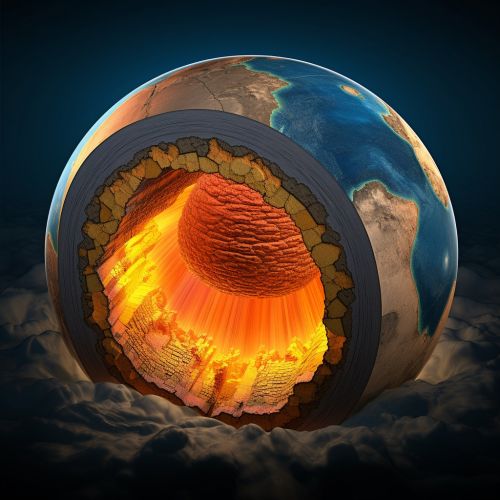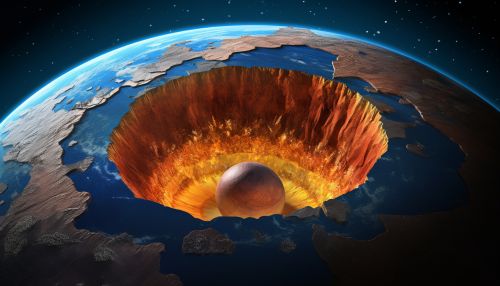Isotope Geochemistry in Earth Sciences
Introduction
Isotope geochemistry is a specialized field within the broader discipline of geochemistry, which focuses on the study of the relative and absolute concentrations of the elements and their isotopes within the Earth. This field of study is used to understand the processes that have shaped our planet over its history, including the formation of the Earth, its crust, and its atmosphere.


Isotopes and Their Significance in Geochemistry
Isotopes are variants of a particular chemical element that differ in neutron number, and consequently in atomic mass. The study of isotopes in geochemistry is significant as it provides valuable insights into the age, origin, and history of the Earth's rocks, minerals, and fluids, including the atmosphere and the oceans. The isotopic composition of these materials can reveal information about the processes that have affected them, such as weathering, metamorphism, and biological activity.
Types of Isotope Geochemistry
Isotope geochemistry can be broadly divided into two categories: stable isotope geochemistry and radiogenic isotope geochemistry.
Stable Isotope Geochemistry
Stable isotope geochemistry involves the study of isotopes that do not undergo radioactive decay. This includes isotopes of elements such as carbon (13C and 12C), oxygen (18O and 16O), and hydrogen (D and H). Stable isotopes are used in a variety of applications in the Earth Sciences, including paleoclimate reconstruction, studies of fluid-rock interaction, and tracing sources of pollution.
Radiogenic Isotope Geochemistry
Radiogenic isotope geochemistry involves the study of isotopes that are produced by radioactive decay. This includes isotopes of elements such as uranium (238U and 235U), thorium (232Th), and potassium (40K). Radiogenic isotopes are used primarily in dating rocks and minerals, tracing the sources of igneous rocks, and understanding the evolution of the Earth's mantle and crust.
Isotope Systems Used in Geochemistry
There are several isotope systems that are commonly used in geochemistry. These include the uranium-lead, rubidium-strontium, and potassium-argon systems, among others.
Uranium-Lead System
The uranium-lead system is one of the most commonly used radiometric dating methods. It involves the decay of uranium isotopes (238U and 235U) to lead isotopes (206Pb and 207Pb respectively). This system is particularly useful for dating zircon crystals, which often contain trace amounts of uranium but exclude lead at the time of their formation.
Rubidium-Strontium System
The rubidium-strontium system involves the decay of rubidium-87 (87Rb) to strontium-87 (87Sr). This system is often used to date rocks and minerals that are billions of years old, and it can also be used to trace the sources of igneous rocks and to understand the evolution of the Earth's mantle and crust.
Potassium-Argon System
The potassium-argon system involves the decay of potassium-40 (40K) to argon-40 (40Ar). This system is often used to date volcanic rocks and ash layers, and it is particularly useful in dating early hominid sites in East Africa.
Applications of Isotope Geochemistry in Earth Sciences
Isotope geochemistry has a wide range of applications in the Earth Sciences. These include age dating, climate reconstruction, tracing of geochemical processes, and environmental studies.
Age Dating
One of the most important applications of isotope geochemistry is in age dating of rocks and minerals. Radiogenic isotopes, such as those of uranium, thorium, and potassium, are used to determine the age of rocks and minerals, providing crucial information about the timing of geological events.
Climate Reconstruction
Stable isotopes, particularly those of oxygen and carbon, are extensively used in paleoclimate studies. The isotopic composition of ice cores, ocean sediments, and fossil shells can provide valuable information about past climates, helping scientists understand how the Earth's climate system has changed over time.
Tracing of Geochemical Processes
Isotopes are also used to trace geochemical processes, such as the sources and pathways of magma in volcanic systems, the sources and ages of groundwaters, and the processes of weathering and soil formation.
Environmental Studies
In environmental studies, isotopes can be used to trace the sources and pathways of pollutants, to study the processes of nutrient cycling, and to understand the impacts of human activities on the environment.
Conclusion
Isotope geochemistry is a powerful tool in the Earth Sciences, providing unique insights into the age, origin, and history of the Earth's rocks, minerals, and fluids. By studying the isotopic composition of these materials, scientists can gain a deeper understanding of the processes that have shaped our planet over its history.
